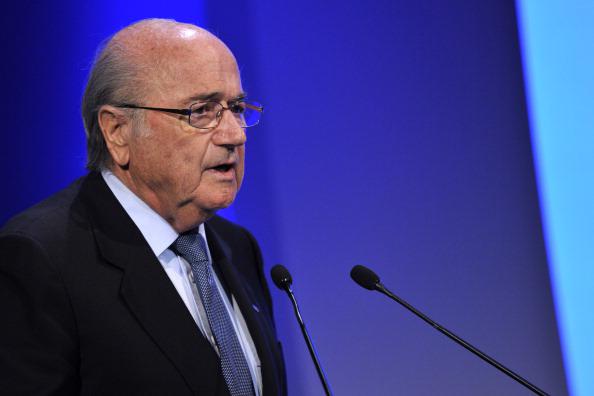The 2022 Qatar World Cup has for years been marred by concerns about worker’s rights abuses, worries over dangerous heat levels for a summer tournament held in the Middle East, and persistent allegations of corruption in the selection of the Gulf State by FIFA’s bid committee. On Sunday, the Qatar World Cup suffered its greatest blow yet when the Sunday Times of London reported that the paper was in possession of millions of secret emails, bank statements, and letters that allegedly prove a Qatari official made $5 million worth of bribes meant to influence the decision.*
The allegations center around former Qatari football official Mohamed Bin Hammam, who has twice been banned by FIFA for allegations of bribery and conflicts of interest. Qatar has denied that Bin Hammam was involved in the country’s World Cup bid, but the BBC has independently confirmed that the Times-obtained emails show he was lobbying on behalf of the country prior to the 2010 selection announcement. Qatar’s bid chairman Sheikh Mohammed bin Hamad bin Khalifa Al Thani once described Bin Hammam as the bid’s “biggest asset.”
Bin Hammam is said to have distributed the money to lower-level African football officials in an attempt to build a groundswell of support, and to have given disgraced former FIFA vice president Jack Warner $1.6 million, including $450,000 prior to the vote.
The reaction to the report has been renewed calls for FIFA to revisit the location of the 2022 World Cup, especially in Britain where several members of Parliament have already called for a revote if the allegations prove to be true. The president of the Dutch football association has said FIFA should “reconsider the allocation” if the charges are proven, while FIFA’s current vice-president Jim Boyce has said he would be in favor of a re-vote if the Times report is ultimately confirmed.
Rejected bids from 2018 and 2022 included England and the United States, but Australia’s bid was probably the strongest considering the 2018 World Cup in Russia is already scheduled be held in a European country and the U.S. hosted just 20 years ago.
Jason Lisk at The Big Lead suggested national boycotts were in order unless the 2022 World Cup is moved, but that seems like it might not even be necessary at this point.* The current scandal could be so large that Qatar may lose the tournament without any such additional outside pressure on FIFA.
*Correction, May 23, 2014: This post originally misspelled the last name of author Jason Lisk. This post originally misstated the name of the Sunday Times of London.
